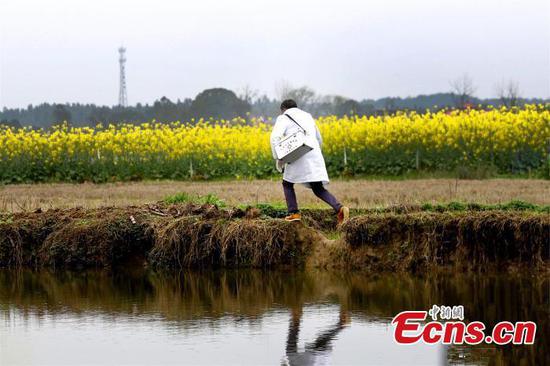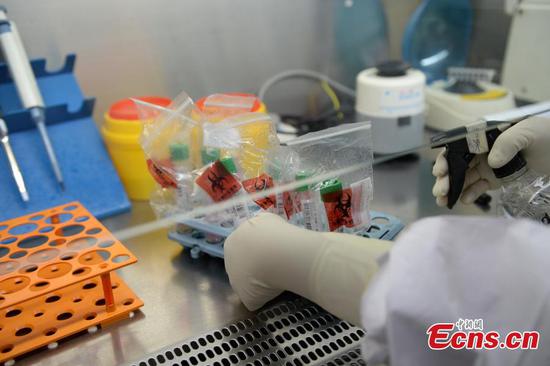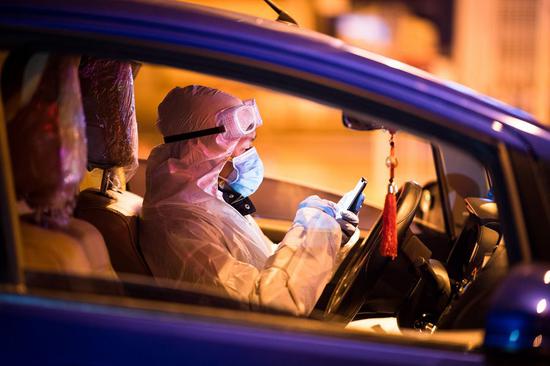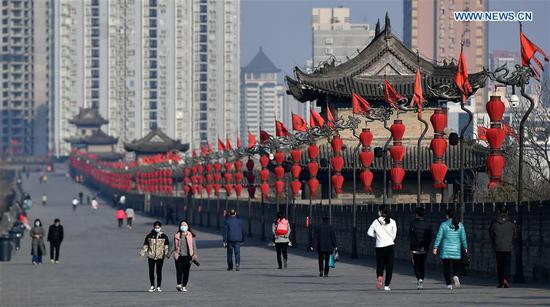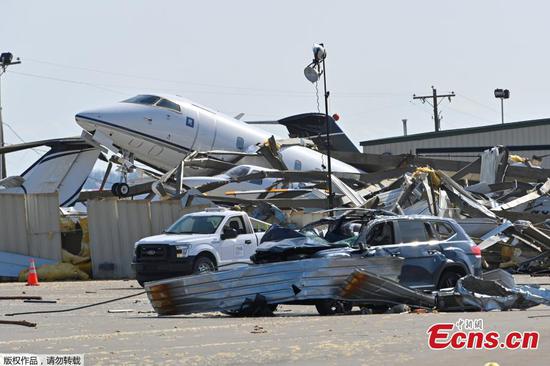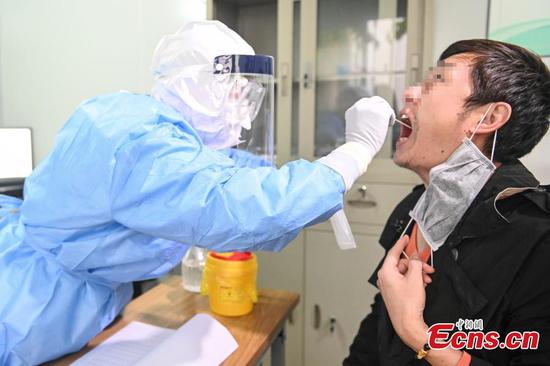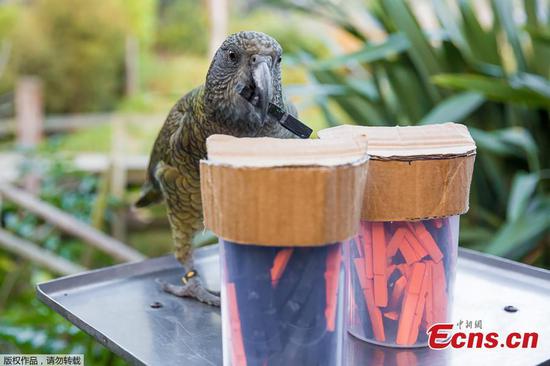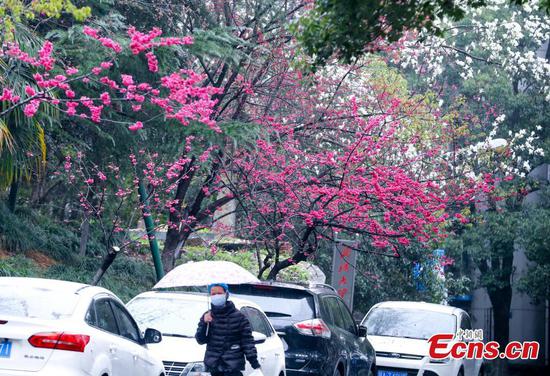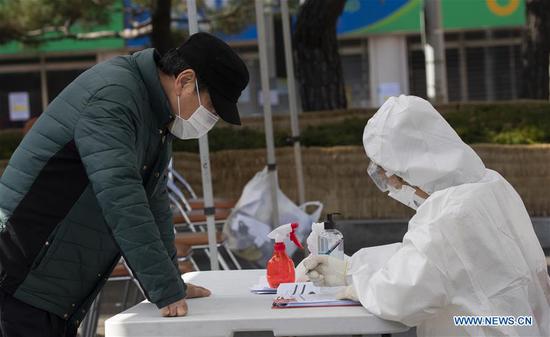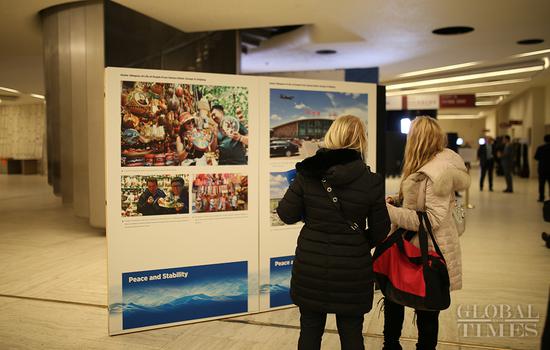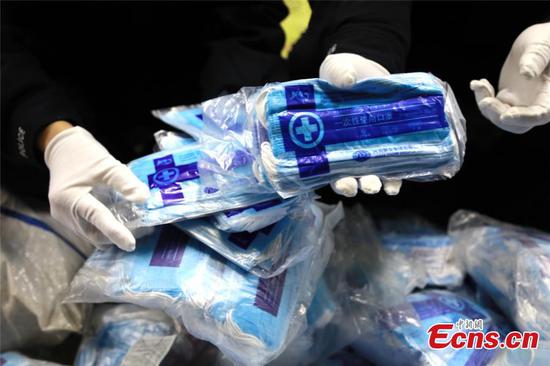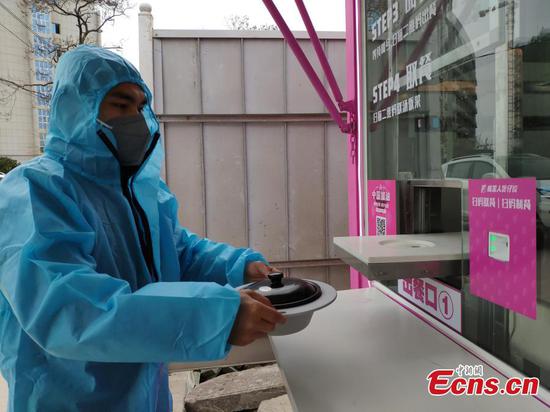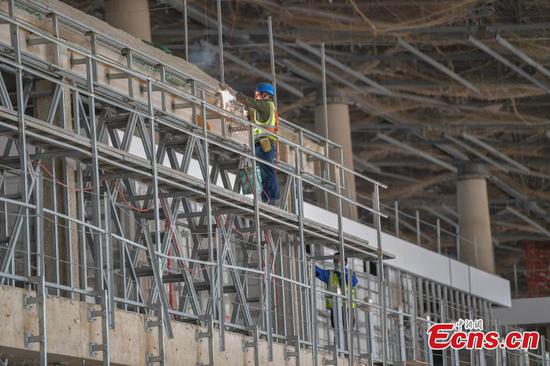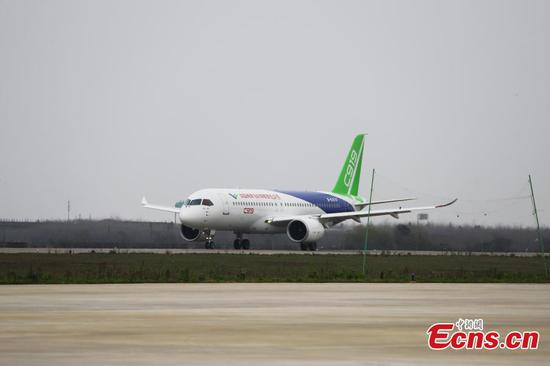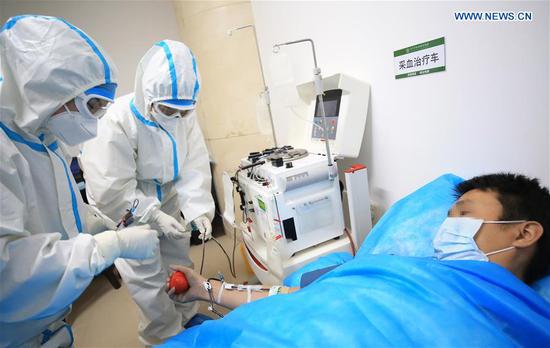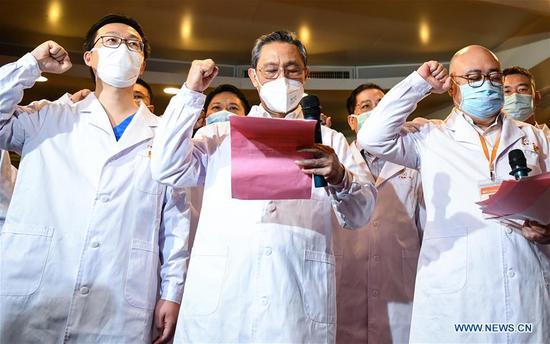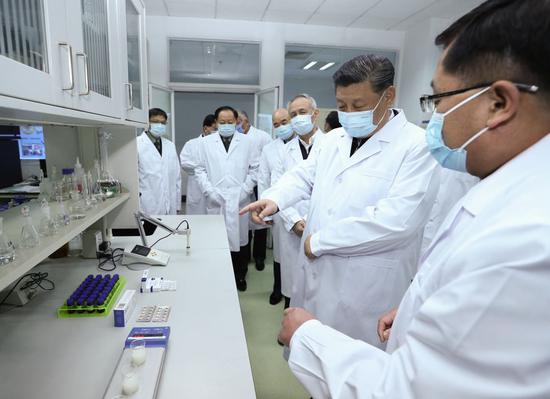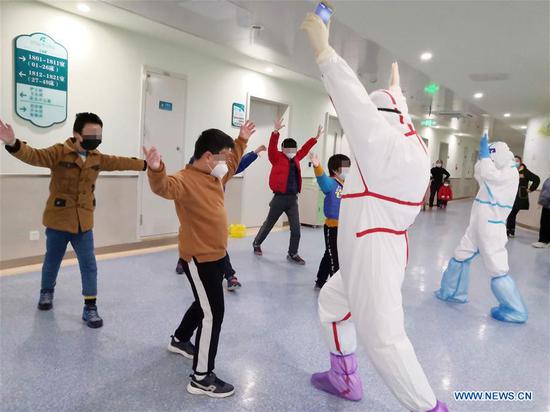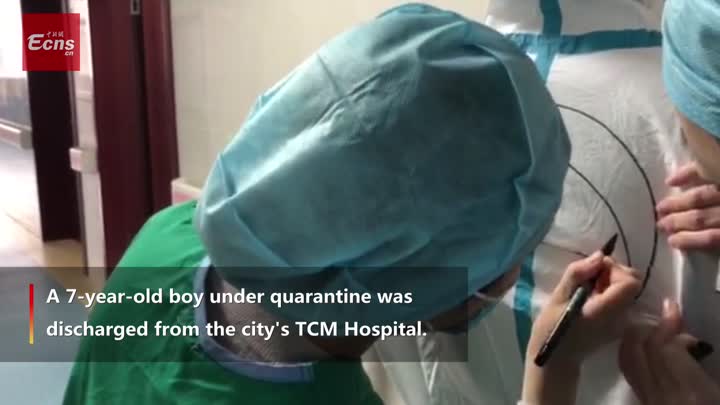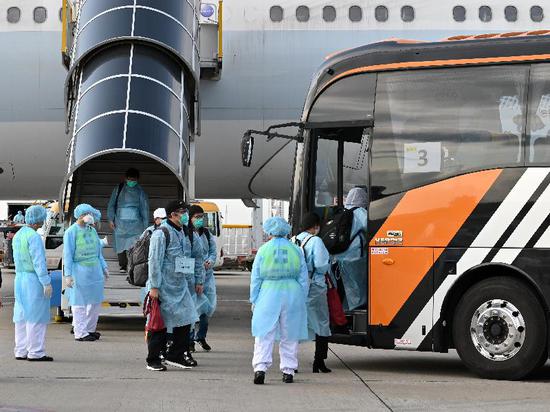
Hong Kong residents board a coach to depart for the quarantine facility after arriving at Hong Kong airport from Wuhan, central Hubei Province, March 5, 2020. (Photo provided by HKSAR gov't)
A total of 225 Hong Kong residents returned to Hong Kong from the central Hubei Province on Thursday by the third and fourth chartered flights commissioned by the Hong Kong Special Administrative Region (HKSAR) government.
The two flights, carrying 97 people and 128 people respectively, arrived at the Hong Kong International Airport at around 4:00 p.m. and 9:00 p.m. local time respectively.
The passengers, wearing protective clothing and facial masks, boarded coaches arranged by the HKSAR government upon arrival and were sent directly to a quarantine center for a 14-day quarantine.
Together with the 244 people who returned on Wednesday by the first and second chartered flights, altogether 469 Hong Kong residents returned from Hubei's capital city Wuhan and other parts of the province.
The operation, led by HKSAR government's Secretary for Constitutional and Mainland Affairs Patrick Nip and Director of Immigration Erick Tsang, was carried out by about 40 staff members of the HKSAR government's different departments and Hong Kong's Hospital Authority.
Nip, who took the fourth chartered flight back to Hong Kong on Thursday, told media at the airport that the cross-boundary, inter-departmental operation involving both public and private organizations was successfully completed thanks to the support from the central government and the Hubei provincial government, as well as the assistance from various departments of the HKSAR government and the airlines Cathay Pacific Airways and Cathay Pacific Dragonair.
The HKSAR government will closely monitor the quarantine situation of the 469 Hong Kong residents, and will seek practical and safe solutions to bring back more Hong Kong residents from Hubei, Nip said, adding that the HKSAR government has so far received over 3,900 help-seeking cases of Hong Kong residents in Hubei.
The actions need to take into consideration the epidemic situation in both the Chinese mainland and Hong Kong, as well as Hong Kong's quarantine and medical capacity, he said.











